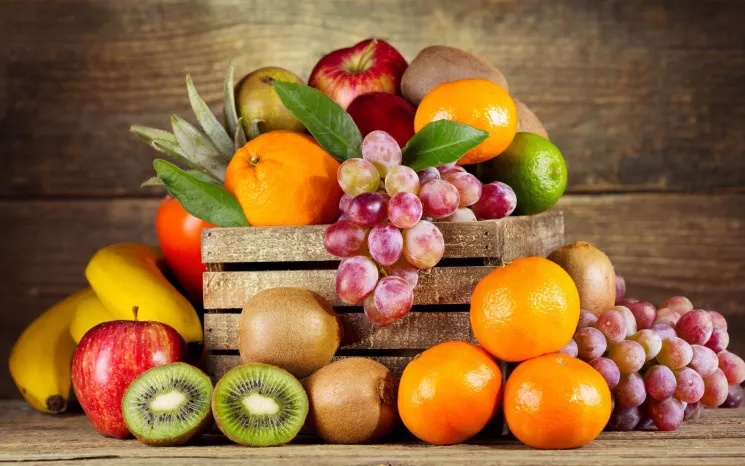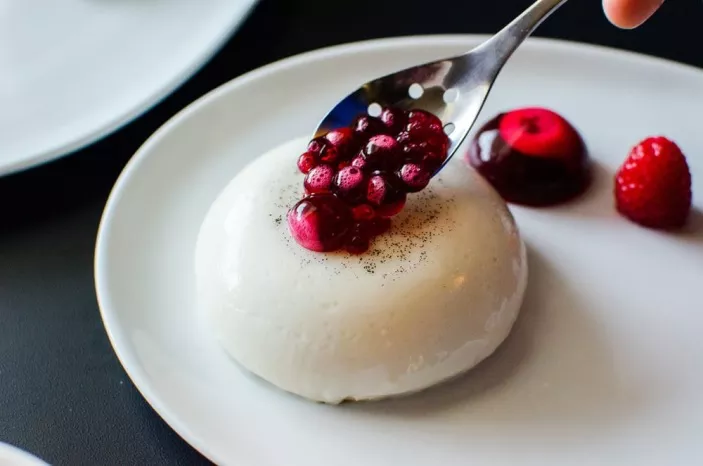High blood pressure, or hypertension, is a common health condition that affects millions of people worldwide. While there are various factors that contribute to blood pressure regulation, diet plays a significant role in its management. Among the dietary choices, fruits stand out as a natural and nutritious way to help lower and manage blood pressure levels. In this article, we will explore which fruits can be particularly beneficial for individuals dealing with high blood pressure and how they work to support better cardiovascular health.
The Link Between Fruits and Blood Pressure Management
Before delving into the specific fruits that can help manage high blood pressure, it’s crucial to understand the connection between fruit consumption and blood pressure regulation.
Fruits are an integral part of a heart-healthy diet. They are rich in essential nutrients, including vitamins, minerals, antioxidants, and dietary fiber. These components contribute to the overall well-being of the cardiovascular system and can positively influence blood pressure levels.
The dietary fiber in fruits, in particular, has a profound effect on blood pressure. Fiber helps reduce blood pressure by enhancing heart health and promoting blood vessel function. Furthermore, the antioxidants in fruits, such as flavonoids and polyphenols, have been shown to have vasodilatory effects, meaning they help relax blood vessels, reducing the resistance to blood flow and subsequently lowering blood pressure.
1. Berries – A Powerful Antioxidant Punch
Berries, such as blueberries, strawberries, and raspberries, are renowned for their potent antioxidant properties. These antioxidants play a crucial role in promoting cardiovascular health and managing blood pressure.
Berries contain flavonoids, particularly anthocyanins, which are associated with improved blood vessel function and reduced blood pressure. A study published in the American Journal of Clinical Nutrition found that regular consumption of berries is linked to a lower risk of hypertension.
These delicious fruits can be easily incorporated into your diet in various ways. You can enjoy them fresh, add them to yogurt, oatmeal, or smoothies, or use them as a topping for whole-grain pancakes or waffles.
2. Citrus Fruits – Vitamin C for Blood Pressure
Citrus fruits, including oranges, grapefruits, lemons, and limes, are well-known for their high vitamin C content. Vitamin C is not only a powerful antioxidant but also plays a role in regulating blood pressure.
Research has shown that a diet rich in vitamin C is associated with lower blood pressure levels. Vitamin C helps dilate blood vessels, making it easier for blood to flow and reducing the resistance in the arteries. This, in turn, helps to lower blood pressure.
Incorporating citrus fruits into your diet can be as simple as enjoying a glass of fresh orange juice in the morning, adding lemon or lime slices to your water, or snacking on grapefruit segments.
3. Bananas – The Potassium Connection
Potassium is a mineral that plays a critical role in blood pressure regulation. It helps balance the effects of sodium, a mineral that can lead to increased blood pressure when consumed in excess. Bananas are a well-known potassium-rich fruit, making them a valuable addition to a high blood pressure management plan.
Potassium helps the body excrete excess sodium through the urine, preventing it from accumulating in the bloodstream and raising blood pressure. Studies have shown that diets high in potassium are associated with lower blood pressure levels.
Incorporate bananas into your daily routine by adding slices to your morning cereal, yogurt, or oatmeal. They also make a convenient and healthy on-the-go snack.
4. Watermelon – Nature’s Hydration
Watermelon is not only a refreshing and hydrating fruit but also an excellent choice for blood pressure management. It’s rich in an amino acid called citrulline, which has been shown to have potential blood pressure-lowering effects.
Citrulline relaxes and widens blood vessels, much like other fruits with vasodilatory properties, helping to reduce blood pressure. Moreover, watermelon has a high water content, contributing to overall hydration, which is essential for cardiovascular health.
Enjoy watermelon as a juicy and hydrating snack, or blend it into smoothies and fruit salads.
5. Kiwifruit – Packed with Fiber and Vitamins
Kiwifruit, often referred to as kiwi, is a small but nutrient-dense fruit that can be a valuable addition to a blood pressure-friendly diet. Kiwis are high in dietary fiber, particularly soluble fiber, which has been linked to lower blood pressure levels.
Soluble fiber helps lower blood pressure by binding to cholesterol particles and removing them from the body. This, in turn, reduces the risk of atherosclerosis (hardening and narrowing of the arteries), which can contribute to high blood pressure.
Kiwifruit is also an excellent source of vitamin C, further supporting its role in blood pressure management. Its sweet and tangy flavor makes it a delightful addition to fruit salads, yogurt, or a standalone snack.
6. Apples – An Apple a Day for Blood Pressure
The old adage, “An apple a day keeps the doctor away,” holds true when it comes to blood pressure management. Apples are a fantastic source of fiber, specifically pectin, which is known for its blood pressure-lowering properties.
Pectin helps relax blood vessels, promoting a smoother flow of blood and reducing blood pressure. A study published in the Journal of the American College of Nutrition found that apple consumption is linked to lower blood pressure.
Apples are a convenient and portable fruit, making them an ideal snack. You can also slice them and add to salads or oatmeal.
7. Pomegranates – The Nectar of Heart Health
Pomegranates are often referred to as the “nectar of heart health” due to their impressive cardiovascular benefits. These unique fruits are packed with antioxidants, particularly punicalagins and anthocyanins, which contribute to their vibrant red color.
The antioxidants in pomegranates have potent anti-inflammatory and vasodilatory effects, helping to relax blood vessels and reduce blood pressure. Research has shown that pomegranate juice consumption is associated with significant reductions in both systolic and diastolic blood pressure.
Pomegranates can be consumed by juicing the seeds, incorporating them into salads, or enjoying them as a standalone fruit.
8. Avocado – A Unique Heart-Healthy Fruit
While avocados are often thought of as vegetables, they are, in fact, a fruit. Avocados are unique in that they are rich in healthy monounsaturated fats, which have been associated with lower blood pressure and improved heart health.
The monounsaturated fats in avocados help reduce bad cholesterol levels, which, in turn, supports better blood vessel function. Avocado consumption has been linked to improved blood pressure control and a lower risk of hypertension.
9. Cherries – A Sweet Solution
Cherries, whether sweet or tart, are not only delicious but also have properties that can help manage blood pressure. These fruits are rich in anthocyanins, the same antioxidants found in berries.
Studies have shown that regular cherry consumption is linked to reductions in both systolic and diastolic blood pressure. Additionally, cherries have anti-inflammatory effects, which can further contribute to improved cardiovascular health.
Cherries can be enjoyed as a snack, added to desserts, or incorporated into savory dishes.
10. Pineapple – Bromelain for Blood Pressure
Pineapple contains an enzyme called bromelain, which has been shown to have potential blood pressure-lowering effects. Bromelain may help reduce the production of angiotensin, a hormone that can lead to increased blood pressure.
Incorporating pineapple into your diet is easy and enjoyable. You can enjoy it fresh, add it to fruit salads, or use it as a base for smoothies.
Conclusion
High blood pressure is a significant health concern, but it can often be managed effectively through lifestyle choices, including dietary changes. Fruits offer a delicious and nutritious way to support blood pressure management. The rich combination of vitamins, minerals, antioxidants, and dietary fiber in various fruits provides the body with the tools it needs to maintain healthy blood pressure levels.






















